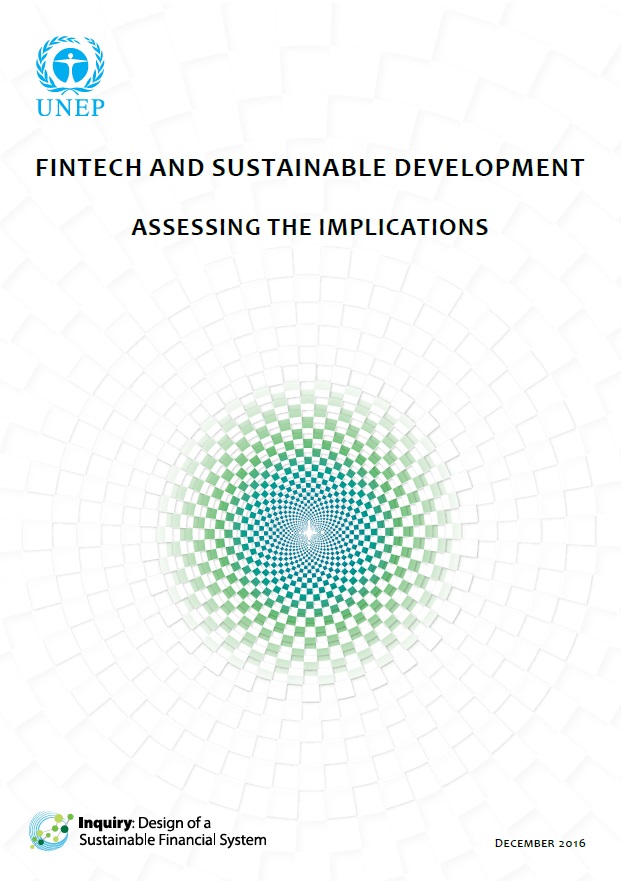Fintech and Sustainable development
EXECUTIVE SUMMARY
Finance is a system in constant flux.At present, the financial system is in both turmoil and transition. The financial crisis and its aftermath caused enormous turmoil and led to an extended period of low growth and instability across the international political economy. Transition of the financial system is in part driven by this turmoil, through policy and regulatory drivers, and heightened the influence of emerging nations in shaping global finance.
Transition is driven by broader historic developments, including sustainable development and financial technology innovations. The world is struggling to address growing inequality, the impacts of climate change and widespread deterioration in the natural wealth that sustains communities and underpins the global economy. The current turmoil is driven in part inadequate policy responses to these challenges. This imperative may seem distant from the financial system, but nothing is further from the truth. As the UNEP Inquiry has spelled out in both editions of its global report, “The Financial System We Need”, realizing the Sustainable Development Goals (SDGs) and climate commitments agreed in 2015 depends in part on a reset of the global financial system to ensure that private capital is redeployed to finance the transition to an inclusive, green economy.
Financial technology (‘fintech’) is emerging as a core disruptor of every aspect of today’s financial system. Fintech covers everything from mobile payment platforms to high-frequency trading (HFT), and from crowdfunding and virtual currencies to blockchain. In combination, such forceful innovations will threaten the viability of today’s financial sector business models, and indeed the effectiveness of current policies, regulations and norms that have shaped modern finance. The unit cost of intermediation of the last century has been estimated to about 1.5-2%, leading to suggestions that efficiency savings over time in one area of financial services have been largely offset by additional fees in another area. This has attracted new fintech start-ups and their disruptive business models, and with them significant opportunities and risks.
The use of technology in finance is of course not new– but a step change is now expected with the novel application of a number of technologies in combination, notably involving blockchain, the ‘Internet of things’ (IoT) and artificial intelligence (AI). This novel application of a number of technologies in combination makes the current wave of disruption unlike any we have seen before in finance. Fintech innovations promise a more efficient, accessible and less vulnerable financial system. At the same time, by creating new markets and blurring the boundaries between financial services and adjacent industries like retail and telecom industries, technology- enabled innovations bring a new set of risks to the financial system and may lead to significant unemployment in light of the increase in AI-led automation and the expanded use of robots under way. Minimizing the risks and maximizing opportunities of new innovations is essential to maintaining a healthy financial system that benefits society at large.
Regulatory response to the 2008-09 financial crisis created an opportunity for new start-ups, where they could provide financial services without the same (high) standard of regulation, and hence without the associated costs. With these new regulations, incumbent banks were forced to shift away from non-core assets and unprofitable customers, leaving this space wide open for new entrants.
To download the full report, please click here.

